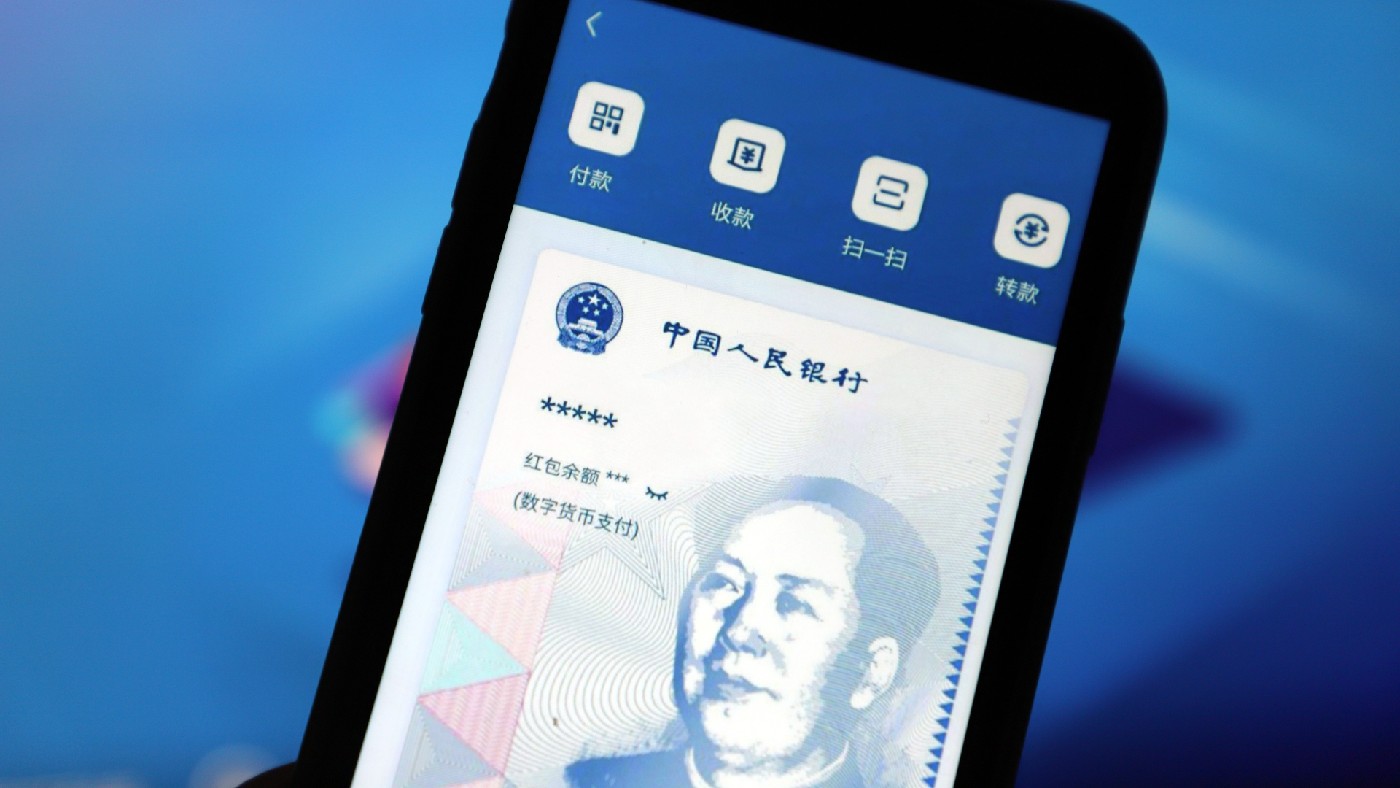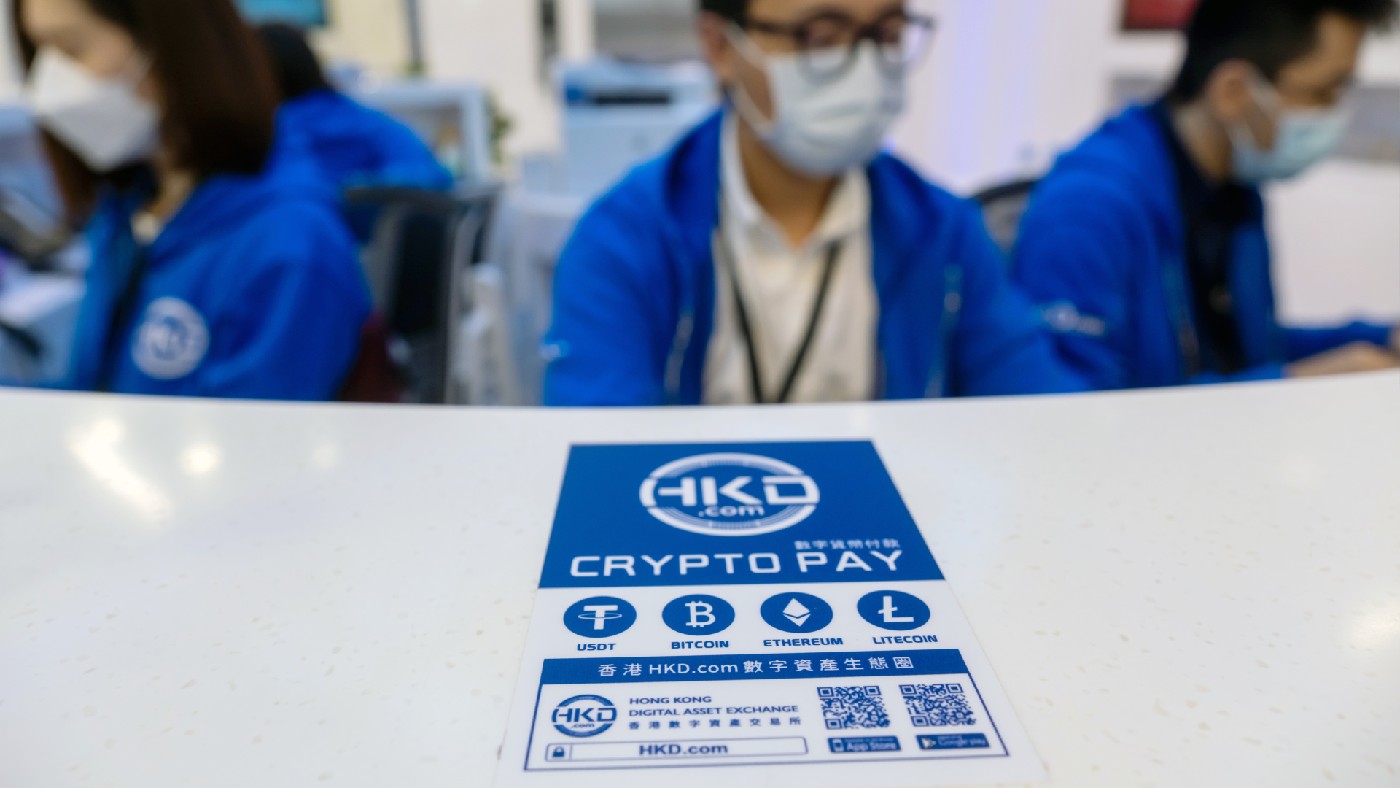Govcoins: everything you need to know about the ‘revolutionary’ digital currencies
Govcoins would allow the creation of faster, safer payment systems, but raise major concerns about data privacy

A free daily email with the biggest news stories of the day – and the best features from TheWeek.com
You are now subscribed
Your newsletter sign-up was successful
Although still largely hypothetical, govcoins are considered by some to be the most important financial innovation since the invention of banknotes. Formally known as central bank digital currencies (CBDCs), they are legal tender in electronic form – and would be tied penny-for-penny to established currencies such as sterling, the dollar and the euro.
Only one big economy, China, has so far conducted live trials; however, nearly 90% of the world’s central banks have launched exploratory projects, according to the Bank for International Settlements, with Sweden’s “e-krona” and the Bahamas’ “Sand Dollar” out in front. In April, the UK Chancellor, Rishi Sunak, set up a taskforce to examine the viability of a digital pound, or “Britcoin”.
How would govcoins differ from cryptocurrencies?
The Week
Escape your echo chamber. Get the facts behind the news, plus analysis from multiple perspectives.

Sign up for The Week's Free Newsletters
From our morning news briefing to a weekly Good News Newsletter, get the best of The Week delivered directly to your inbox.
From our morning news briefing to a weekly Good News Newsletter, get the best of The Week delivered directly to your inbox.
In some ways, they would be similar: imagine bitcoin, if bitcoin were managed by the Bank of England and backed by the Government. Electronic versions of currency already predominate in most financial systems. However, the electronic deposits and digital accounts used by normal customers are privately managed by commercial banks; central banks have their own reserves of digital money, but they mostly only supply it to other banks.
The most far-reaching version of a CBDC would mean that, instead of holding an account with a retail bank, you could do so directly with a central bank. Rather than paying with a card, you could use the central bank’s system – perhaps through an app similar to PayPal or Apple Pay.
The Bank of England thinks that CBDCs would “exist alongside cash and bank deposits, rather than replacing them”, but even so, it would be a revolutionary step.

What’s driving these experiments?
A free daily email with the biggest news stories of the day – and the best features from TheWeek.com
The fast decline of cash, and the challenge to the monetary system posed by cryptocurrencies. Bitcoin’s emergence as a mainstream, if highly volatile, $1trn asset class has persuaded many other players to join the game.
There are now numerous alternatives to bitcoin – “altcoins” such as ethereum and monero – along with “stablecoins”, which try to reduce the investment risk of cryptocurrencies by pegging them to a currency or commodity: USD Coin is pegged to the dollar, Glint to the price of gold.
Central banks are particularly concerned by Facebook’s plan for a private digital currency called Diem (formerly Libra). Governments fear that the anonymity offered by these currencies will increasingly be used for illegal purposes and that, being unregulated, they could undermine the stability of the financial system.
China (once a centre of bitcoin trading) has now prohibited banks and payment firms from facilitating crypto-transactions. And some central bankers have concluded that they must join the game by creating their own currencies, or risk losing control.
What are the advantages?
Proponents cite all kinds of benefits: CBDCs could create a better financial system. Today’s banks are expensive (we pay an average of £150 per year in fees) and they sometimes fail. They also exclude many: even in the UK, 1.3 million are thought to be “unbanked”.
Govcoins would allow the creation of faster, safer, cheaper payment systems – particularly useful in nations with large numbers of unbanked citizens. Since every currency unit could be tracked, CBDCs would be a powerful deterrent to tax evasion, money laundering and other financial crimes.
Govcoins could also transform monetary policy. E-accounts would give central banks more precise control over systemic risks and the money supply than current tools such as interest rates – enabling them to “nudge” economic behaviour. In China’s recent trial, e-yuan were programmed with an expiry date, to encourage immediate spending.

And the downsides?
CBDCs raise major concerns about data privacy and excessive state control. Without safeguards, the unprecedented power conferred by digital currencies – potentially, to see every purchase – could turn central banks into a financial Big Brother.
The Bank of England has suggested that govcoins could be designed to give a degree of privacy, particularly if intermediaries (most likely domestic banks) provided “payment interfaces”. But that may not satisfy those concerned about the degree of government control (accounts could be shut down at the tap of a button) and state surveillance – not just of bank balances but, because of the transaction trail, of people’s entire financial histories.
What other objections are there to CBDCs?
Environmentalists point to the obscene amount of energy used by bitcoin’s blockchain technology (the digital ledger system used to verify ownership). Studies suggest it consumes as much electricity as a medium-sized European country. CBDCs could, in theory, be much more efficient, but that has yet to be proved.
The cryptofinance industry is also up in arms. When the Britcoin project was announced, Jason Cozens of Glint argued that the Bank of England was “looking to control, or better yet, crush the rise of alternative currencies”. Mainstream banks are also very concerned by CBDCs.
Why are banks worried?
Govcoins could pose an existential threat to commercial banks. Why would anyone use a high-street bank if central banks were to provide the same service, more cheaply and safely? And if banks’ deposits were reduced, the financial system would be greatly changed: banks would have less to invest in mortgages and the economy.
Digital currencies are sure to develop, but depending on which versions win out, the “revolution could go in two directions”, says Prof Randall Kroszner of the University of Chicago Booth School of Business – “either a triumph of decentralisation and market forces, or a triumph of centralisation and government monitoring”.
-
 At least 8 dead in California’s deadliest avalanche
At least 8 dead in California’s deadliest avalancheSpeed Read The avalanche near Lake Tahoe was the deadliest in modern California history and the worst in the US since 1981
-
 Political cartoons for February 19
Political cartoons for February 19Cartoons Thursday’s political cartoons include a suspicious package, a piece of the cake, and more
-
 The Gallivant: style and charm steps from Camber Sands
The Gallivant: style and charm steps from Camber SandsThe Week Recommends Nestled behind the dunes, this luxury hotel is a great place to hunker down and get cosy
-
 Currencies: Why Trump wants a weak dollar
Currencies: Why Trump wants a weak dollarFeature The dollar has fallen 12% since Trump took office
-
 Elon Musk’s starry mega-merger
Elon Musk’s starry mega-mergerTalking Point SpaceX founder is promising investors a rocket trip to the future – and a sprawling conglomerate to boot
-
 TikTok: New owners, same risks
TikTok: New owners, same risksFeature What are Larry Ellison’s plans for TikTok US?
-
 Will SpaceX, OpenAI and Anthropic make 2026 the year of mega tech listings?
Will SpaceX, OpenAI and Anthropic make 2026 the year of mega tech listings?In Depth SpaceX float may come as soon as this year, and would be the largest IPO in history
-
 Leadership: A conspicuous silence from CEOs
Leadership: A conspicuous silence from CEOsFeature CEOs were more vocal during Trump’s first term
-
 Ryanair/SpaceX: could Musk really buy the airline?
Ryanair/SpaceX: could Musk really buy the airline?Talking Point Irish budget carrier has become embroiled in unlikely feud with the world’s wealthiest man
-
 Powell: The Fed’s last hope?
Powell: The Fed’s last hope?Feature Federal Reserve Chairman Jerome Powell fights back against President Trump's claims
-
 Taxes: It’s California vs. the billionaires
Taxes: It’s California vs. the billionairesFeature Larry Page and Peter Thiel may take their wealth elsewhere